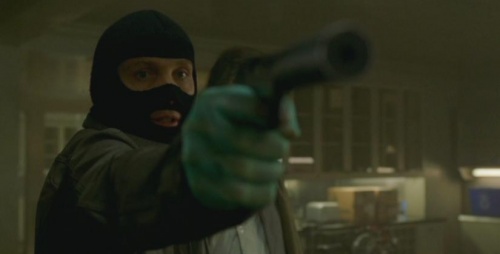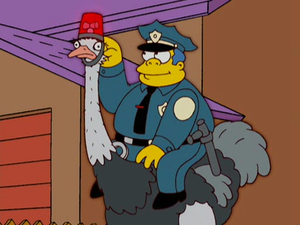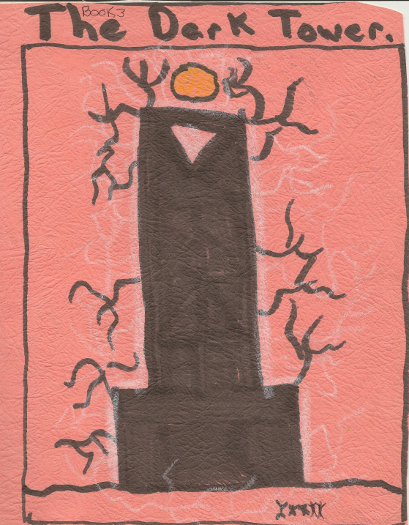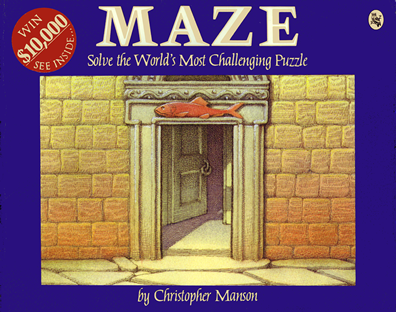I caught Panic Room on TV the other day. I haven’t seen it since it was in theaters; it was one of those movies I enjoyed while watching and then never thought about again. I still let the gods of cable TV run my viewing; despite the growing ability to watch whatever I want when I want to, I never actually put in a DVD of an old movie or order it up. I like to just find them on TV when I least expect it. It goes back to my crude childhood days of having 12 channels and no VCR; the sudden rush of delight when you turned on the TV and there was actually a good movie on still warms my otherwise black and unhappy heart.

Motherfuckin' Raoul
So, I watched Panic Room for the first time in years. Still a great movie, in my opinion. Sure, you once again have to try and care about characters who are so goddamn rich they can buy a townhouse like that in Manhattan. And that is pretty goddamn rich.
The question of why so many characters in fictions are rich is an interesting one. Of course, let’s first agree that I have no idea what percentage of characters are, in fact, rich in fiction stories. I’ve done no research. It just seems to me like an awful lot of stories focus on people who are rich. In stories like Panic Room, of course, the simple answer is: Poor people do not have anything to steal. Case closed.
Anyway, they manage to get you caring about our rich white protagonists with the double-punch of Sad Jodie Foster as Divorced Wronged Woman and her daughter, played by pre-Twilight Kristen Stewart, as Sick Girl who has diabetes and needs constant care to stay alive. So, sure, they’re rich and white and privileged, but they have their problems too. Once I get past my own class-warfare issues, it’s a fine story, told very well.
Except for Raoul.
In the story, Junior, a crackhead Trustafarian, recruits Burnham, who works for the security company that installed the alarm and titular panic room in the house, to help him break in and rob the place. It’s made very clear that Junior has chosen the moment carefully because his aged uncle has died and the house was sold, but he believes escrow has not yet ended, so the house should be completely empty. So the plan is clearly that they sneak in when no one is there, Burnham uses his knowledge of the alarm system to make sure they are undetected, they steal the $22 million in bearer bonds hidden in the panic room safe, and then they sneak out. Since no one else even knows the bearer bonds are there, it is obviously planned as a quick, easy crime. When Junior finds out the house is occupied, he goes into a fit of rage and panic. Because he was sure no one would be in the house.
Junior has just introduced Raoul to Burnham, and Burnham is upset at his last-minute inclusion. Raoul wears a mask and carries a humongous gun, and talks like a hard case. Why in hell is Raoul there? Junior says he recruited Raoul because he has experience with robbery, but it doesn’t make any sense: Junior was convinced the house would be empty and they would encounter no resistance. Junior is clearly shown to have no ability to think ahead or make complex plans. So why would he recruit a psychopath like Raoul before knowing there were people in the house that would need to be ‘handled’?
On one hand, the answer is easy: The story needed Raoul. Junior’s weak. Burnham’s a good guy, deep down, who refuses to hurt anyone. Junior and Burnham are not menacing. Raoul adds that edge of menace the story needs, because he is not a nice guy, he is willing to hurt people, and he is clearly in it for himself. So that’s the easy answer: Raoul is there because the writer decided he needed Raoul to bring some tension to the story, and to escalate the violence believably.
On the other hand, it makes absolutely no sense. Junior expects an easy score. Why would he risk a share of the money and complications to bring Raoul in? This could have been solved very easily: Have Junior call in Raoul after they discover the house isn’t empty. A panic decision. Works perfectly. Except then, of course, you’ve ruined the flow of the sequence. As it stands the scene where the three criminals arrive at and enter the house is masterfully done. David Fincher, the director, has an ease with the camera that makes for fluid visual storytelling. The camera swoops through the house like a bird, smoothly tracking the movements of the men as they appear outside, traverse the perimeter, and finally effect an entrance. They then go immediately to work. To insert a sequence where Junior calls in Raoul and then waits for his arrival would have slowed down the pace excruciatingly and ruined that flow.
These sorts of ripple effects happen a lot. As you write a story you have to be thinking about your details, because a simple change suggested towards the end can cause your whole plot to ripple out, knocking things out of place. In the end, I could believe that the screenwriter just decided to let that slight illogic lie, handwave it as evidence of Junior’s criminal-wannabe, crackhead-addled thought process. And it does almost work. Well enough anyway to get by with, except for one cranky guy watching it on Encore or whatever eight years later.
That’s why my wife The Duchess and I can’t wait for true Internet Television, so we can just press buttons on our remotes when we like or dislike something. I’m not thinking about tedious typing of opinions. Just big red and green LIKE and DON’T LIKE buttons we can mash whenever something displeases us. And then a little avatar of our heads pops up on screen, cursing and dancing in rage. For both buttons, actually, now that I think about it. And who wouldn’t want my disembodied head to appear on your screen, cursing and complaining?
This is the problem with being a working writer: You just can’t enjoy movies any more. You’re always tugging at the plot threads, seeing if anything shakes loose. It can be maddening. This is why I drink. Because I know someone’s out there right now, doing the same to my books. The bastards.
 I watched Inception for the second time the other day. It remains, in my mind, a good but not great story. Certainly it is well made and I applaud Nolan’s ability to structure a complex series of layers into a coherent storyline. I enjoy the movie, but it could have been much more interesting. The real strength of the movie is the fact that people have been discussing it endlessly since it came out. Hell, I’d give a limb to write a story that people discuss endlessly. Based on that alone, I’d want to murder Chris Nolan in a jealous rage. Add in The Dark Knight and he and I are eternal enemies, even though he’ll never know it. He’s joined my list of People I’ve Never Met but Despise because of Their Professional Success, right there with Ben Affleck.
I watched Inception for the second time the other day. It remains, in my mind, a good but not great story. Certainly it is well made and I applaud Nolan’s ability to structure a complex series of layers into a coherent storyline. I enjoy the movie, but it could have been much more interesting. The real strength of the movie is the fact that people have been discussing it endlessly since it came out. Hell, I’d give a limb to write a story that people discuss endlessly. Based on that alone, I’d want to murder Chris Nolan in a jealous rage. Add in The Dark Knight and he and I are eternal enemies, even though he’ll never know it. He’s joined my list of People I’ve Never Met but Despise because of Their Professional Success, right there with Ben Affleck.





